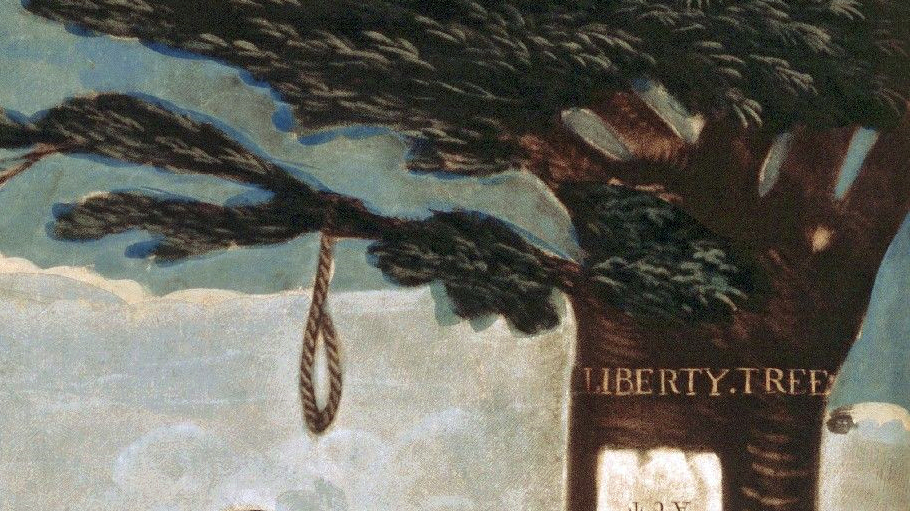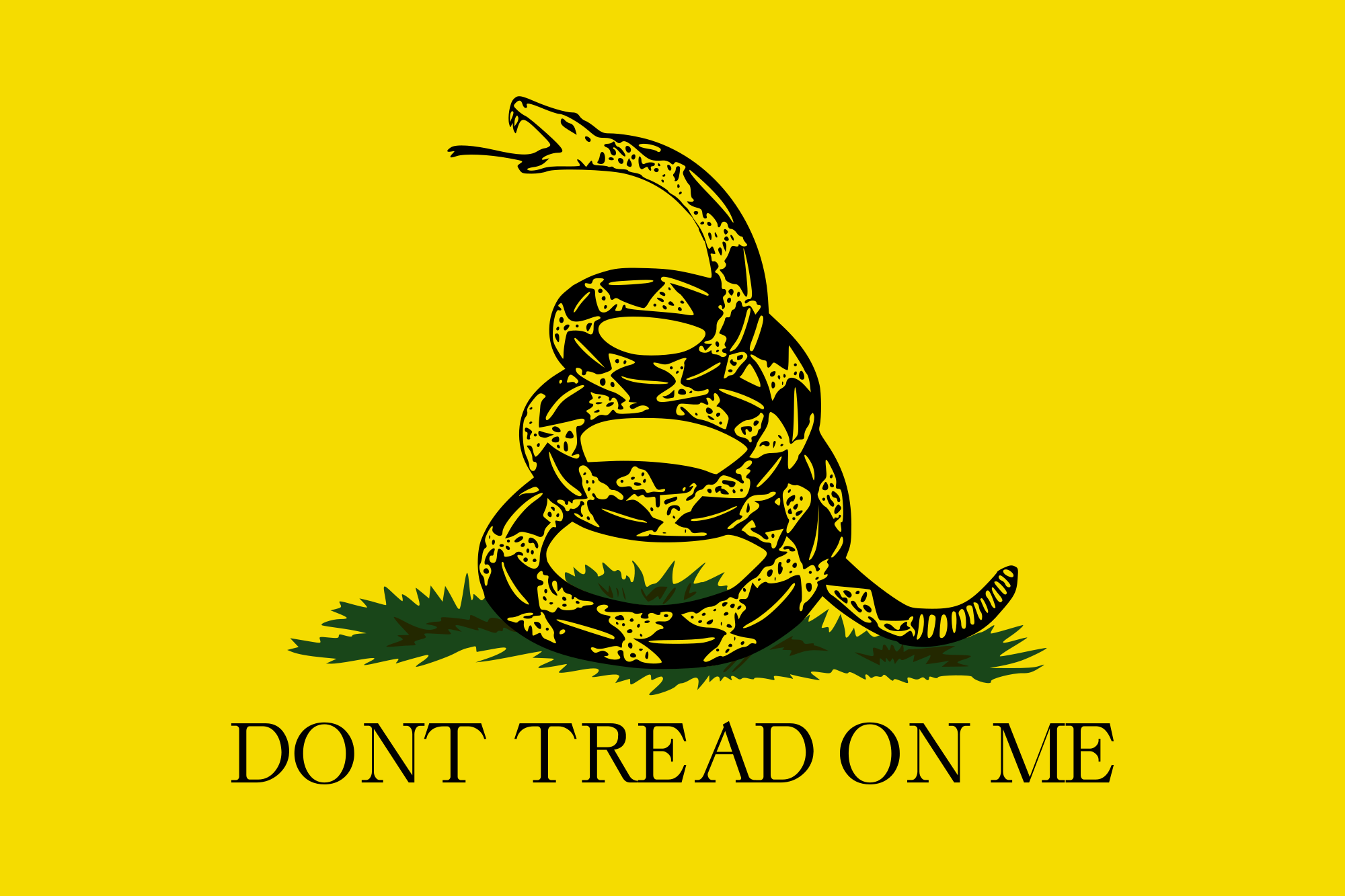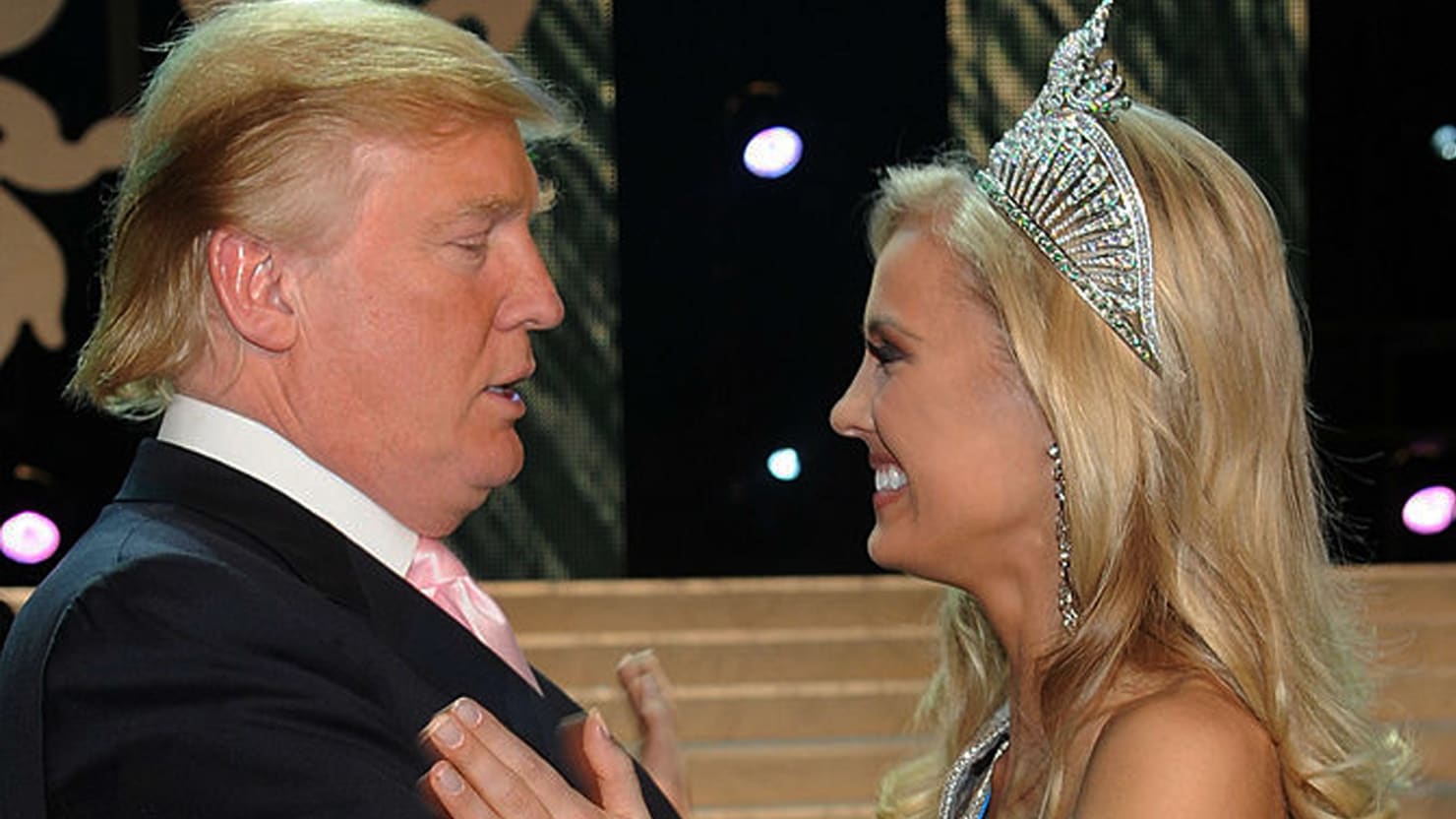
The catalogue of Mr Trump’s offenses against moral decency, truth, history, international order, and law is now so massive that attention has to turn to another question. What sort of tree produces fruit like this?
My friends remind me that we are superior to the bloated, gun-toting troglodytes who belong to his cult because we did not vote for this mephitic creep to be president. Fair enough. A vote is (or can be) a moral judgement, and there are plenty of people who used the word “unfit” to describe Mr Trump long before he erased any doubt in that respect. Hillary Clinton, to name one. In the last year especially, the kindest word that has been mainstreamed in the media to describe him, after some early hesitation, is “Liar.”
Yet Donald J.Trump, with his loose lips and looser suits fell from the same Liberty Tree that gives us freedom of speech and press, and also gives us the right to bear arms–apparently even to carry assault weapons–and to say terrible and ugly things about people and groups we don’t like. Once you unchain Lady Liberty, she goes wheresoever she wants.
Yet even if the words beneath her feet are welcoming, she has had a less sanguine look on many occasions. She was dedicated (1886) only four years after the China Exclusion Act (1882) barred any immigrants from that country entering the United States–this reward after decades of Chinese labour was exploited to build the transcontinental railroad. The Act was not repealed until after the Second World War. She turned away ships full of Jewish refugees towards South America, and back to Europe; stared blankly with passive acquiescence while Japanese at the other side of the continent were thrown into detention camps. And this doesn’t even scratch the surface of the denial of civil rights to the children and grandchildren of slaves, or the disenfranchisement of women for a quarter century after she was dedicated.
While things are bad again, with Muslim bans and the detention of children, let’s not kid ourselves into thinking this Lady has showered liberty and justice on all at all times. That process has been intermittent and at times painful. What strikes our liberal crowd between the eyes is our idea that liberty moves slowly and only forward–the idea we thought was incipient in the belief in “a more perfect union.” The advent of Donald Trump, for the fist time in my life, makes her direction uncertain, even reversible. The last time I can remember experiencing such dislocation was the 1963 assassination of John F. Kennedy, the first time (though I was a kid) I realized that the people who disagreed with me could also be armed and dangerous.
Liberty was already nascent in the Revolution, in its challenge to monarchical authority and “freedom” from taxation. A man who owned property, including slaves, had a right to defend it. Land ownership had been a problem from the time of King Philip’s (Pokunoket chief Metacom’s) War (1675-1676) and the slaughter of tribes allied to the Narraganset Indians, who saw land as land and private property as an English idea. The conceptual shift from seeing “Indians” as rightful possessors of land to being squatters and interlopers on land belonging to the United States was abetted by the fact that the native Americans themselves had a more dynamic understanding of the ground they lived on. It made these insiders, in later centuries, the first “outsider” problem confronted by the federal government.
There would be many others: To read Howard Zinn’s People’s History of the United States or a little of Ronald Takaki’s A Different Mirror is to understand that although we are a nation of immigrants, our pot did not melt all the ingredients equally or successfully. The white protestant Boston lawyers and Virginia planters who founded the Republic established it on principles of property ownership being a requirement of the right to vote. The Civil War did not solve a problem or repair injury: it froze it in its time to come unstuck later. We are still experiencing the effects of that cataclysm, with every pulling down of a Confederate general’s memorial or banning of the Stars and Bars being declaimed by a vocal minority as an affront against their liberty. Speeches like the one Trump made at Charlottesville encourage this kind of “equivalency thinking.”
Yet to the extent history is juridical, there should be no equivalence between right and wrong. The defeat of the south included the defeat of an inhuman and detestable institution, slavery. No American president since the Civil War has given moral equivalence to the side that defended it, until now.
Discussions of free speech, private property, the acquisition of wealth and the right to defend it with armed force have been with us from the beginning–long before America was the United States after 1789. Every ardent Trump supporter could move easily from a good-citizen-position of being in favor of increased military spending to joining a regional militia if that army was instructed by a president to disarm them. An Oklahoma farm-worker can shift from being an aggrieved white man to a states-rights Klan member with just a little provocation and tough talk from six locked and loaded buddies. The racialist, anti-education, rural poor outcasts of Reconstruction did not simply die away or get reborn in the twentieth century under the heavy foot of progressive liberalism. They have been here all along. Mr Trump, to these people, is the voice of Liberty. It’s why even his most noxious acts–like hugging an American flag–and his oiliest jingoism–America First– light fires of patriotic fervor in the hearts of the “oppressed.” They are the living relics of the failure of Reconstruction and one hundred fifty years of segregation.
To the sons of liberty who populate Trump’s rallies with their underachieving kids, this right to armed protection is enshrined in the Second Amendment. And we need to be clear about this: The Second Amendment isn’t just about guns. That it is is the assumption of those of us, including me, who don’t like guns or the kind of people they’re often attached to. The Second Amendment is about defending a worldview, a particular vision of America as being right in the world only when it is white. This principle is as central to its defenders as the First Amendment is to the rest of us. Perhaps this is just a reflection of the fact that there are two ways to win an argument–by speech or by force.

In 1776 and 1863 the cry of the oppressed was liberty: the colonists from foreign sovereignty; the slaves from their owners; the rebels from fealty to a national experiment which was still being tested. Franklin frets over its experimental nature in his “alleged” response to Mrs Powel. Lincoln refers to its provisional nature in his address at Gettysburg. To be fair, Liberty was a popular battle cry in Europe as well. But those are faraway dates, and for most Americans–so great is our ignorance of American history and the context of modern discussion– there is nothing in reality or modern experience to pin them to.
For the founders and for Lincoln, the opposite of liberty was not slavery but unity. How can you have a state, the French writer Rousseau wondered throughout our formative century, when every man’s liberty must be regarded equally but the state must pull together as one, through the willing cession of some “natural rights” needed for the harmonious function of the whole, according to what he called the “General Will.” For Rousseau and the founders, the General Will was never meant to be equated with the democratically ascertained opinion of the people. It is not the will of the majority. It is definitely not popular opinion. It is rather what most reasonable people, over time, would want under the best of circumstances. And while the founders got that point (Rousseau died in 1782, before the French Revolution), later generations did not.

But this is where comparisons to the past must end. Because we have never had a president less in touch with the history of the Republic and the function of liberty in its construction than this one. To be blunt, we have never had to confront, as our recent ancestors did, the threat of the dissolution of the union. We are the imperfect product of our founding crisis, our civil war and Reconstruction, our booms and busts, world wars, social equality movements, and especially our becoming an equal ally of other nations. Each of these had something to do with the nature of liberty–in the old language, the rights of free “men.” But liberty is not a disposition. Ask a Chinese citizen what she considers the indispensable condition for a well-ordered state and she will say social harmony, not liberty. Ask a fascist and he will say obedience or loyalty to the state and its rulers. Jefferson once said that he didn’t mind having agnostics as worthy citizens of the Republic because what they believed neither “picked his pocket nor broke his bones.” Can we reform that to say, a Muslim woman wearing a veil does not restrict my liberty to believe as I choose? What can be so offensive about the outward expression of a belief I am not required to share? What is offensive is that laws and bans should be enacted to prevent such expressions. That is the real threat to liberty. We believe that social harmony comes from conscience exercised through the rule of law, not simply the supremacy of the state. We believe that justice comes from the belief that no one is above the law, not from obedience to the ruler.
The greater danger–and this notion has been virtually catechetical since the eighteenth century in America–is to curtail liberty based on what people believe, how they look, or where they come from, how much they earn, who they love, or how healthy they are. Every political decision of my lifetime that amounted to progress has been based on an enlargement of liberty and freedom for all groups and classes. Every failed project and embarrassing moment has come from attempts to limit it.
To put it starkly: Liberty is normative in America. It is organic. But anything that is injurious to liberty–intolerance, racism, sexual bigotry, religious hate–is an affront to freedom. We are, to quote the axiom, “always free but not always free to do what we want.” An act of absolute liberty that offends, limits, excludes, humiliates or harms is not an exercise of executive privilege or personal rights but an offense against human values.
We are now being tested not by ordinary events, which are organic to the nature of democracy, but by the election of a leader who does not know where he stands in relation to any of the crises and tests the republic has endured. He is not the Voice of Liberty. His mawkish patriotism is for sale to regimes who prefer totalitarianism to freedom. He has declared the press the enemy of the people. He has manipulated religious opinion with the glaring hypocrisy of the Pharisees. He cannot make decisions based on historical knowledge, nor geographical and cultural context, because he is ignorant of both. He cannot tell the truth, in any domain, but relies on hysterical approval of falsehood and exaggeration. He regards America as wealth-accumulating entity driven by greed, supported by a war industry, and in a state of perpetual economic war with foes and allies.

So we could ask: since Trump is actually a page, or at least a paragraph, in this checkered story, why single him out for special blame. America, after all, is still (charitably) a Great Experiment. Though he looks like bad fruit this son of an unskilled Scottish chambermaid, grandson of a draft-dodging, brothel-owning refugee from Germany, via the great Northwest and Canada, husband of two east European buccaneer wives, and friend to beauty pageant, porn star and Playboy models everywhere, is now a part of the American story. To some people in the Heartland, he is the prince of liberty and the exemplification of a certain kind of “freedom.” To most Americans, he is Mammon.
I’m going to end this screed with a series of questions–for which I thank not Rousseau but his nineteenth century protege John Stuart Mill who also wrote a famous essay On Liberty.
For Rousseau, liberty, is the “immunity from arbitrary exercise of authority; political independence.” natural liberty being the freedom to pursue one’s own desires and civil liberty being the freedom to pursue the General Will. Only when he gets to chapter four of his massive “essay” does Mill take up the question of whether the state has the right to exercise control over liberty. “The only purpose for which power can be rightfully exercised over any member of a civilized community, against his will, is to prevent harm to others.” But as we ponder the implications of that assertion, each in her or his way, let me pose the daunting questions raised by Mill’s and Rousseau’s inquiry into the nature of liberty:
- Does the state have the right to regulate gun ownership, as a predicate of its obligation to minimize harm?
- Is it the right of parents to deny education to a child to preserve their freedom of decision?
- As a laborer owns his body and his labour, is it not the case that the pregnant woman owns her own body and should be granted total freedom in deciding matters pertaining solely to her?
- Can the state restrict the lawful entry of people into a given territory when there is no evidence harm will come of their entry but certain that harm will come to them if they are denied entry?
- Does a rich state have an obligation to provide for the health and well-being of all of its citizens?
- Obversely, if it is illegal for a parent to withhold medical treatment to a sick child, from where does the state derive the right to withhold medical care to its general population?
- Does an individual have the right to defy the state in cases where his participation in its activities would cause harm to others?
I venture to say that the President of the United States has not thought about any of these questions, nor read Mill, Rousseau or Jefferson, or the United States Constitution, let alone the massive debates contained in The Federalist Papers–the first recorded debates in the history of a fledgling democracy about the philosophical grounds of its Constitution. He might say to this, “So what. Why should I read when I can rely on my very good brain for the answers.” This question has already been answered.
Many early depictions of the Liberty Tree show a noose dangling from one of its branches. The message was unmistakable. The true sons and daughters of liberty will punish traitors and tyrants. Sicut erat in principio, et nunc, et semper.

Thank you for posting to this blog again, we always enjoy your posts!
Liberty means we don’t have to bow to the exhaustive yet ever growing Progressive Canon. BTW you really should recognize Religious Dogma when you’re writing it. Your God being The State. Do look above. That’s not a government and not our Republic: Its The State as God and Progress as Religio (bonds).
And we will not bow. Gap toothed or not – although prior to the “Progress” of the last 50 years we were wealthier and safer.
(Also Dental Care while not “free” wasn’t prohibitively expensive either. But that’s a minor point. It only comes into play if those who hold you captive remember the insult. This is why violent people are often polite).
However to Liberty and her Hanging Tree: I think you begin a conversation you don’t finish except perhaps with the last gasp – to use a figure of speech.
How many armed fighters do you have?
How many do we have?
As if your target is Trump. Your target and quite openly are Whites Mr. Hoffmann. We understand. It is of course how you were raised – Tribally and with the Tribal contempt of all outside the Tribe. As we are well warned and indeed daily threatened we have no intention of being the next round of Kulaks genocided by – your Tribe.
Or your hapless and retarded sidekicks.
Whom you’ll of course abandon to their fate. As you have the last 50 years.
The only hanging you’re likely to attend isn’t the one you desire – and not for Trump but for your ancient enemy – the rest of us.
You’re very bold to post this without an army, police or militia to back it up.
Too bad. In the end it seems to come down to race.
I normally say good luck now- but the screed above is too much.
And everything you say about my peoples genes was said about yours- do watch The Eternal Jew.
Very good read.
Nevertheless, there are tensions between some ideals and liberty, such as religious freedom. This can be seen in the legal trends lending supremacy of religious belief over law. The contradiction is also inherent to any ideology, religious or political, that would deny rights and so injure liberty. At some point, that which injures liberty must be restrained by secular and nonpartisan law. Easy to say, but it gets thorny when Christians increasingly claim the right to enforce their beliefs, or when considering Islamic teaching and its doctrinal opposition to the freedom of religion.